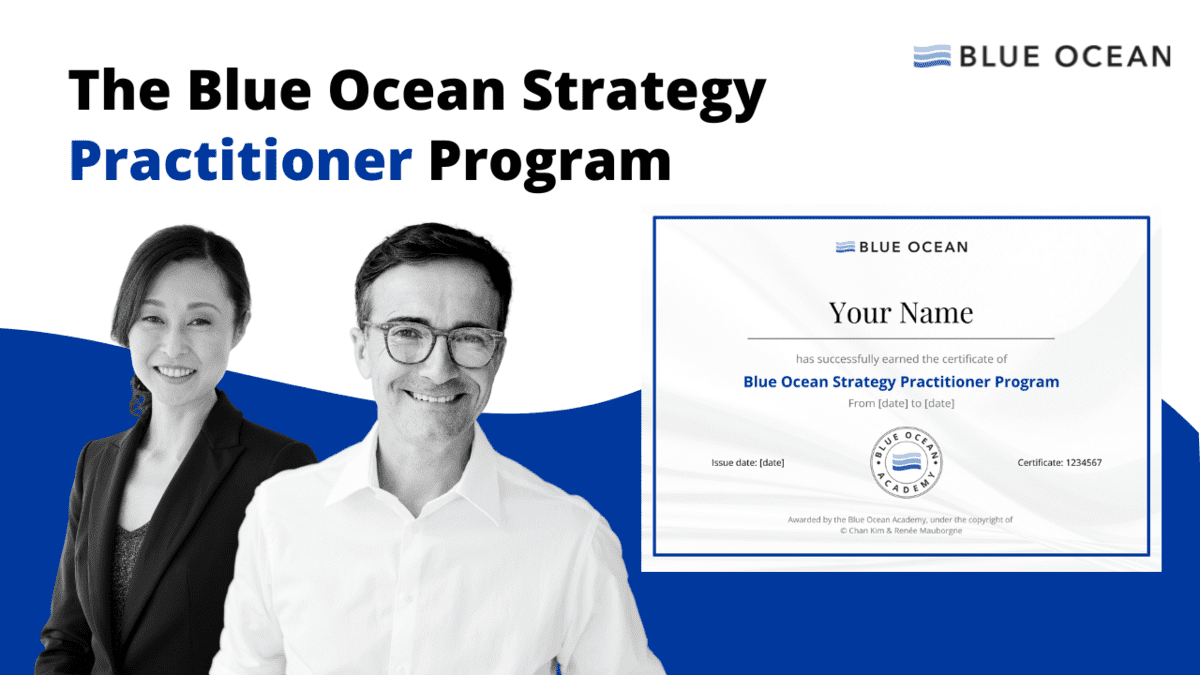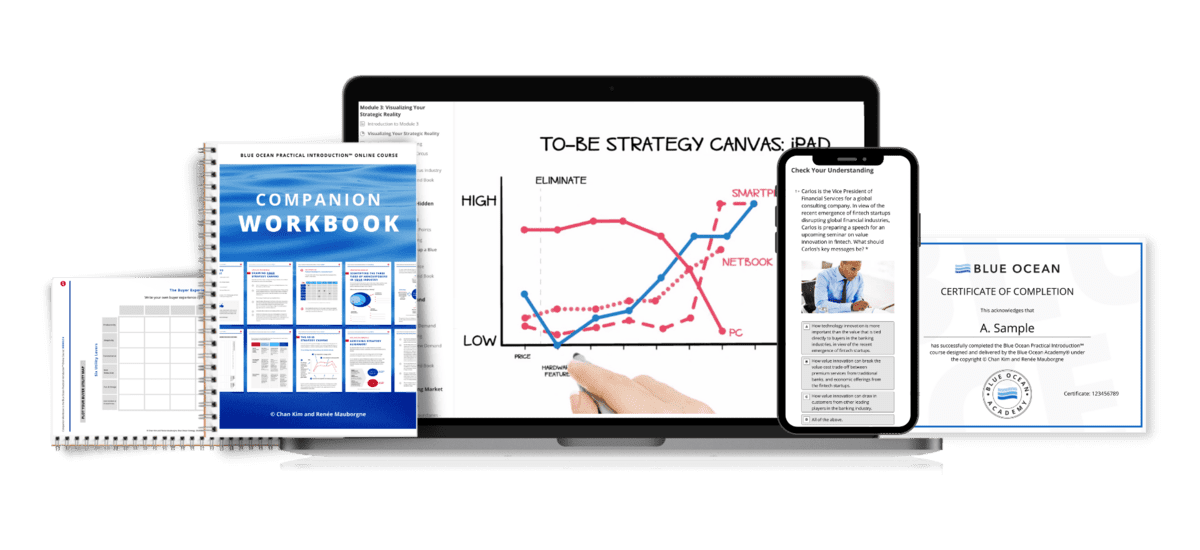ITUNES
With the launch of iTunes, Apple unlocked a blue ocean of new market space in digital music that it has now dominated for more than a decade.
Apple observed the flood of illegal music file sharing that began in the late 1990s, enabled by file sharing programs such as Napster, Kazaa, and LimeWire. By 2003 more than two billion illegal music files were being traded every month. While the recording industry fought to stop the cannibalization of physical CDs, illegal digital music downloading continued to grow.
With the technology out there for anyone to digitally download music free, the trend toward digital music was clear. This trend was underscored by the fast-growing demand for MP3 players that played mobile digital music, such as Apple’s hit iPod. Apple capitalized on this decisive trend with a clear trajectory with the creation of iTunes in 2003.
In agreement with five major music companies—BMG, EMI Group, Sony, Universal Music Group, and Warner Brothers Records— iTunes offered legal, easy-to-use, and flexible à la carte song downloads. By allowing people to buy individual songs and strategically pricing them far more reasonably, iTunes broke a key customer annoyance factor: the need to purchase an entire CD when they wanted only one or two songs on it. iTunes also provided a leap in value beyond free downloading services via sound quality as well as intuitive navigation, search and browsing functions.
The unprecedented value iTunes offered triggered customers the world over to flock to iTunes with recording companies and artists also winning. Under iTunes they receive some 70 percent of the purchase price of digitally downloaded songs, at last financially benefiting from the digital downloading craze. In addition, Apple further protected recording companies by devising copyright protection that would not inconvenience users—who had grown accustomed to the freedom of digital music in the post-Napster world—but would satisfy the music industry.
Today iTunes offers more than 37 million songs as well as movies, TV shows, books and podcasts. It has now sold more than 25 billion songs, with users downloading on average fifteen thousand songs per minute. iTunes is estimated to account for more than 60 percent of the global digital music download market. While Apple has dominated this blue ocean for more than a decade, as other online stores zoom in on the this market, the challenge for Apple will be to keep its sights on the evolving mass market and not to fall into competitive benchmarking or high end niche marketing.
Like Apple iTunes, could you unlock unprecedented value for buyers by looking across path six of blue ocean strategy’s six paths framework?
Blue Ocean Strategy audiobook is also available on iTunes.
ITUNES
With the launch of iTunes, Apple unlocked a blue ocean of new market space in digital music that it has now dominated for more than a decade.
Apple observed the flood of illegal music file sharing that began in the late 1990s, enabled by file sharing programs such as Napster, Kazaa, and LimeWire. By 2003 more than two billion illegal music files were being traded every month. While the recording industry fought to stop the cannibalization of physical CDs, illegal digital music downloading continued to grow.
With the technology out there for anyone to digitally download music free, the trend toward digital music was clear. This trend was underscored by the fast-growing demand for MP3 players that played mobile digital music, such as Apple’s hit iPod. Apple capitalized on this decisive trend with a clear trajectory with the creation of iTunes in 2003.
In agreement with five major music companies—BMG, EMI Group, Sony, Universal Music Group, and Warner Brothers Records— iTunes offered legal, easy-to-use, and flexible à la carte song downloads. By allowing people to buy individual songs and strategically pricing them far more reasonably, iTunes broke a key customer annoyance factor: the need to purchase an entire CD when they wanted only one or two songs on it. iTunes also provided a leap in value beyond free downloading services via sound quality as well as intuitive navigation, search and browsing functions.
The unprecedented value iTunes offered triggered customers the world over to flock to iTunes with recording companies and artists also winning. Under iTunes they receive some 70 percent of the purchase price of digitally downloaded songs, at last financially benefiting from the digital downloading craze. In addition, Apple further protected recording companies by devising copyright protection that would not inconvenience users—who had grown accustomed to the freedom of digital music in the post-Napster world—but would satisfy the music industry.
Today iTunes offers more than 37 million songs as well as movies, TV shows, books and podcasts. It has now sold more than 25 billion songs, with users downloading on average fifteen thousand songs per minute. iTunes is estimated to account for more than 60 percent of the global digital music download market. While Apple has dominated this blue ocean for more than a decade, as other online stores zoom in on the this market, the challenge for Apple will be to keep its sights on the evolving mass market and not to fall into competitive benchmarking or high end niche marketing.
Like Apple iTunes, could you unlock unprecedented value for buyers by looking across path six of blue ocean strategy’s six paths framework?
Blue Ocean Strategy audiobook is also available on iTunes.
THE BLUE OCEAN STRATEGY PRACTITIONER PROGRAM

Transform your strategic perspective, master blue ocean tools and frameworks, & learn to unlock new growth opportunities
Get started with new market creation with our live, interactive, expert-led program.


















